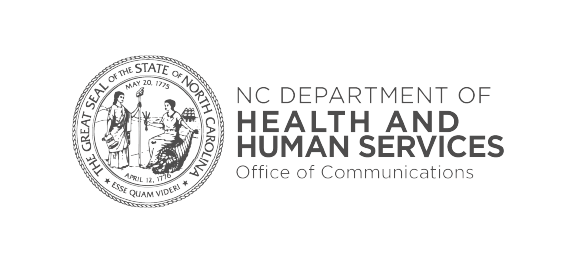What is Depression?
Depression is a mood disorder that may range from mild to severe. Its symptoms affect how a person feels, thinks, and handles daily activities. Its physical component is a chemical imbalance in the brain whereby a patient cannot regulate their mood, but its root may also include genetic vulnerability and stressful life events.
Similar to other mood disorders we treat at Apogee Behavioral Medicine, like anxiety, there are different types that are differentiated by the severity of the symptoms and associated life circumstances. These include major depression, persistent depressive disorder, seasonal affective disorder, and depression with symptoms of psychosis like manic depression.
Treating Depression: A Provider’s Perspective
“Depression is a condition that affects many lives. Anyone can suffer from depressive episodes during their life. These episodes can be recurring or prolonged, and affect not just the patient, but their friends and family as well. It’s important, when treating depression, to recognize the importance of a balanced approach that includes prevention, active treatment and maintenance.” – Dennis M. Klein, D.O.
Who Can Treat Depression
Depression can be treated by a Physician, Nurse Practitioner, Physician Assistant, Psychologist, and other mental health professionals. Specialized treatment with therapy, medications, and/or Transcranial Magnetic Stimulation (TMS) may require a coordinated team effort. Apogee Behavioral Medicine has same-day appointments available. If you or someone you love is suffering from depression, please contact us today.
Signs and Symptoms of Depression
Signs and symptoms of depression can be emotional and physical. Emotional symptoms include a persistent sad or empty mood, pessimism, restlessness, guilt, worthlessness, loss of interest in hobbies, difficulty concentrating, and thoughts of death. Physical symptoms can include fatigue, difficulty concentrating or making decisions, oversleeping or difficulty sleeping, changes in weight and appetite, and persistent physical pain. The degree to which a patient experiences these symptoms helps inform their providers of the appropriate treatment plan.
Everyone experiences their own form of depression and not everyone has all the benchmarks or what might be considered “typical” symptoms. Symptoms of depression can interfere severely with day-to-day life and changes in mood have consequences that compound the depression such as failed relationships and professional failures.
Risk Factors for Depression
When you are suffering or a loved one is suffering from depression or has suffered from depression, it is natural to look for answers from the environment to genetics, to past or present trauma experiences. Below are a few commonly recognized risk factors underlying depression.
- Genetics: There are genetic markers for depression that run in families.
- Brain Chemistry: The way your brain processes chemicals, including serotonin, dopamine, and norepinephrine can contribute to depression.
- Environmental: Those who suffer from major or minor trauma including abuse, neglect, and violence are at higher risk of suffering from depression.

Who Is Depression Therapy For?
Those who experience symptoms of depression lasting longer than two weeks, should seek help. It is a serious mental illness and it will not go away on its own.
Our providers all practice using standardized, evidence-based treatments to meet all your wellness needs.
Our staff is well-equipped to support you along all aspects of your care.
We put you in the driver’s seat by offering ease of access to your team
Treatment Options for Depression
Treatment options for depression vary widely and include medication management, behavioral therapy, electroconvulsive shock therapy (ECT), mindfulness, and most recently Transcranial Magnetic Stimulation (TMS). Most of the medical interventions for treating depression involve prescribing medication that alters the brain chemistry to help regulate a patient’s mood. These are effective and often used with behavioral therapies and diet, exercise, and lifestyle recommendations.
Depression has not always been treated as a serious mental illness and often, in history, research and innovation on the treatment of depression has taken a backseat to other mental illness conditions, however, we have many recent breakthroughs in treatments. Transcranial Magnetic Stimulation (TMS) is a relatively recent breakthrough that is now FDA-approved for ages 15 and up for the treatment of depression. Learn more about TMS for treating depression or contact us to learn more.
Same Day Appointments Available
Apogee Behavioral Medicine offers same-day appointments and Telepsychiatry. We are available when you need us most. It is difficult to predict when a symptom of ADHD presents itself in a novel way. We are here to demystify these feelings and symptoms and provide support and relief.

FAQs about Depression
Depression is much more complex than a chemical imbalance in the brain. While it is shown that those suffering do have an imbalance of mood-regulating chemicals in the brain, there are also genetic and life factors that can cause depressive episodes and depression. For these reasons, people experience depression very differently.
At Apogee Behavioral Medicine, we use various diagnostic tools, including behavioral assessment, genetic testing, and medical testing, to get a comprehensive view of a patient and determine the appropriate patient plan. Patients and loved ones need to understand that there are many more medical links to depression than previously thought. In some cases, patients may have vitamin deficiencies or hormonal imbalances that are easily corrected. Contact us to learn more.
When chemical imbalances exist in the brain and a patient or guardian wants to explore medical interventions and medication options, a psychiatrist is the appropriate doctor. We recommend a full evaluation and consultation to find the right team to treat each case.
Apogee Behavioral Medicine has a team of trained psychologists, psychiatrists, nurse practitioners, and physician assistants to treat depression.
Depending on your unique symptoms, either a psychologist or psychiatrist are the medical professionals who treat depression. At Apogee Behavioral Medicine, we have both who have expertise in a range of demographics.
Depression can be treated without medicine. Transcranial Magnetic Stimulation is one of the best non-medical treatments in the last decade and we see incredible results. This painless treatment addresses the chemical imbalances in the brain to help patients with mood regulation. It stimulates neurons in the brain using magnetic pulses that can reset areas of the brain and improve mood. Learn more about TMS therapy for depression here.
Insurances Accepted
















Call us at (855) 409-9002 to see if you are covered.
Insurance plans may vary by state and are subject to change.
